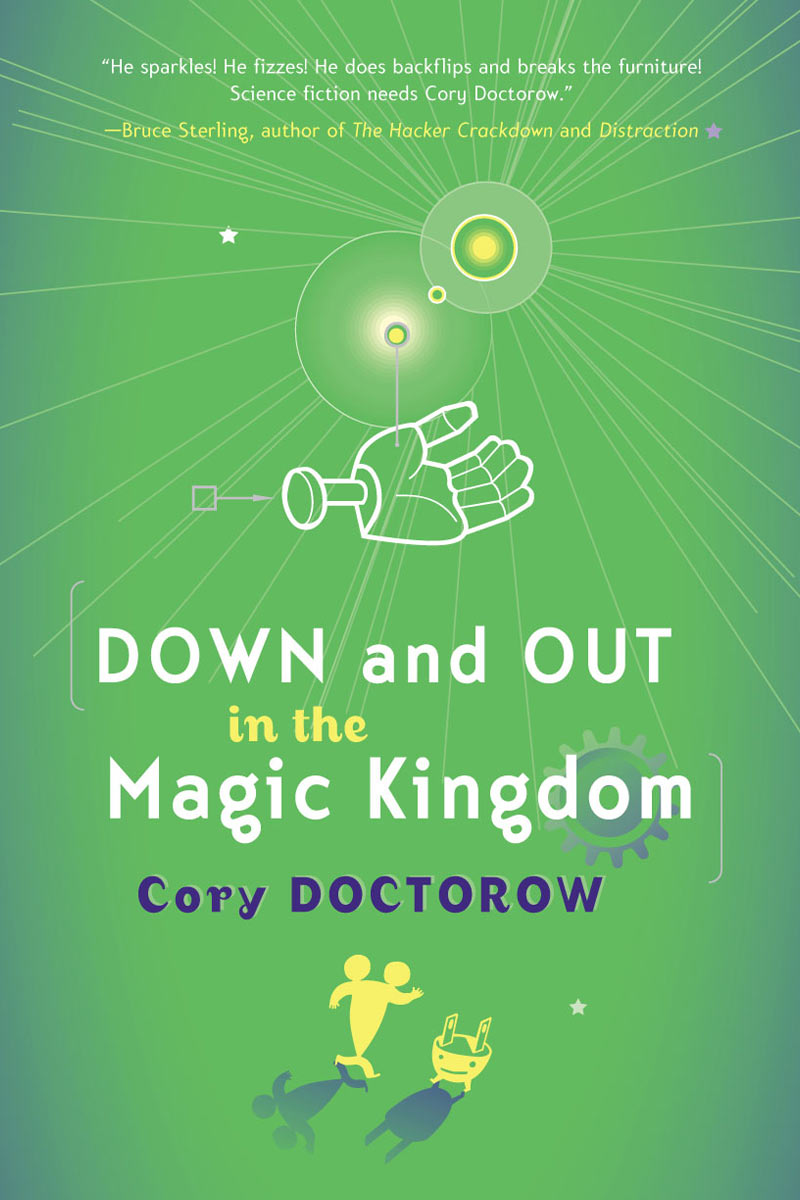
The talented folks at DaveFilms have produced a full-cast audiobook adaptation of my award-winning novel Down and Out in the Magic Kingdom. They’re transmitting it in ten parts, as a podcast — part 1 just went live.
This is the second audio adaptation of Down and Out — the podcaster Mark Forman read the book aloud on his podcast in August 2005.
I love the different adaptations of the book — it’s amazing to hear my words read by so many different people, with so many different choices about how to dramatize it. Often, the reading isn’t how I heard it in my own head when I wrote it, which is cool — it’s wild to hear how your own words sound to someone else.
Link to part 1 as MP3, Link to part 1 as streaming Quicktime, Podcast feed


































